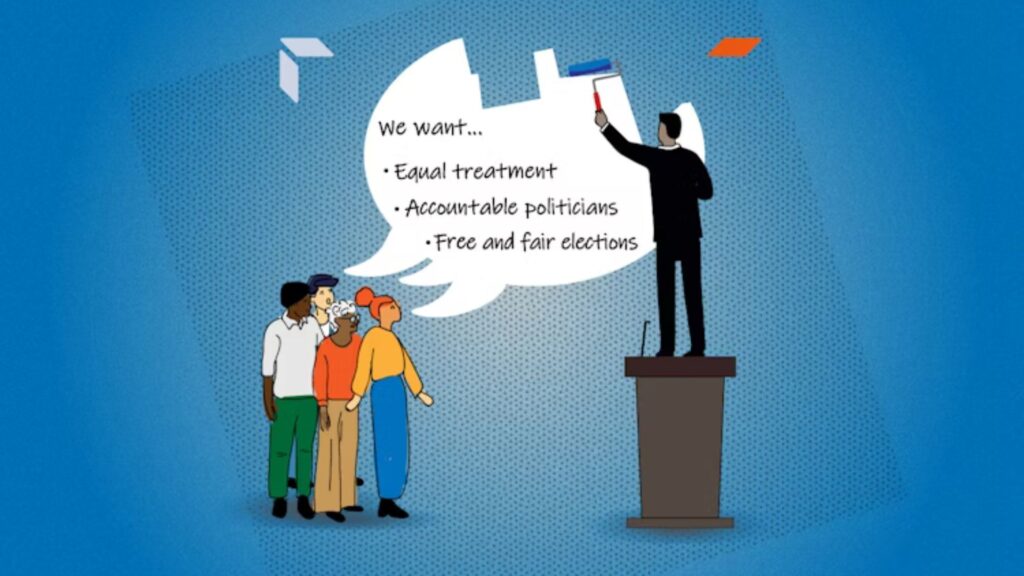Free speech is a cornerstone of democratic societies. It ensures that individuals can express their ideas, criticize the government, and participate in public discourse without fear of censorship or retaliation. This article explores the vital role of free speech in a democracy, examining its benefits, challenges, and the need to protect this fundamental right.

Understanding Free Speech
Definition: Free speech refers to the right to express opinions, ideas, and information without government interference or punishment. It includes the freedom to speak, write, and share content through various media.
Legal Framework:
- Constitutional Protections: In many democracies, free speech is protected by constitutional or legal provisions. For example, the First Amendment of the U.S. Constitution guarantees this right.
- International Standards: Free speech is also upheld by international human rights agreements, such as the Universal Declaration of Human Rights.
Benefits of Free Speech in a Democracy
Promotes Open Discourse:
- Diverse Perspectives: Free speech allows for the exchange of diverse viewpoints, fostering a robust public debate. This diversity helps society address complex issues and find common ground.
- Informed Citizenry: When citizens have access to a variety of opinions and information, they are better equipped to make informed decisions and participate effectively in democratic processes.
Checks and Balances:
- Government Accountability: The ability to criticize and challenge government actions is crucial for holding officials accountable and preventing abuses of power.
- Transparency: Free speech supports transparency by allowing media and individuals to investigate and report on government and corporate activities.
Encourages Innovation and Progress:
- Intellectual Growth: Freedom of expression promotes creativity and intellectual exploration, leading to advancements in science, technology, and the arts.
- Social Change: Historically, free speech has played a key role in social movements and reforms, driving progress on issues such as civil rights and gender equality.
Challenges to Free Speech
Hate Speech:
- Balancing Act: While free speech is essential, it can sometimes clash with the need to prevent harm. Hate speech, which targets individuals or groups based on race, religion, or other attributes, presents a challenge.
- Regulation vs. Censorship: Finding the balance between protecting individuals from harm and preserving free expression can be complex. Excessive regulation may lead to censorship and undermine the very freedoms it aims to protect.
Misinformation and Fake News:
- Impact on Society: The spread of misinformation and fake news can erode trust in institutions and disrupt democratic processes. Addressing this issue requires careful consideration to avoid infringing on free speech while combating harmful falsehoods.
- Role of Platforms: Social media platforms and other online spaces play a significant role in the dissemination of information. They face challenges in managing content without stifling legitimate free expression.
Government Overreach:
- Surveillance and Censorship: In some cases, governments may attempt to suppress free speech through surveillance, censorship, or legal restrictions. Such actions can undermine democratic principles and stifle dissent.
- Legal Constraints: Legal frameworks that restrict free speech, even under the guise of national security or public order, can pose threats to democratic freedoms.
Protecting and Promoting Free Speech
Legal Protections:
- Constitutional Safeguards: Ensuring that free speech rights are enshrined in constitutions and protected by law is fundamental to preserving democracy.
- Judicial Oversight: Courts play a crucial role in interpreting and upholding free speech rights, balancing individual freedoms with public interests.
Public Engagement:
- Education and Awareness: Promoting an understanding of the importance of free speech and the principles of democracy helps build a society that values and defends these rights.
- Dialogue and Debate: Encouraging open and respectful dialogue can help address contentious issues while upholding free speech principles.
Advocacy and Activism:
- Support Organizations: Numerous organizations work to defend and promote free speech, providing resources, legal support, and advocacy.
- Grassroots Efforts: Individuals and communities can engage in grassroots efforts to protect free speech, including participating in public demonstrations and campaigns.
The Future of Free Speech
Evolving Challenges:
- Digital Age: The rise of digital platforms and social media presents new challenges for free speech, including issues related to online harassment, censorship, and the role of tech companies in moderating content.
- Global Perspectives: The concept of free speech varies across cultures and legal systems. International collaboration and dialogue are essential for addressing global challenges related to this fundamental right.
Strengthening Protections:
- Ongoing Vigilance: Protecting free speech requires ongoing vigilance and adaptation to new threats and challenges. Ensuring that democratic institutions and legal frameworks remain robust is crucial for safeguarding this essential right.
Conclusion
Free speech is a fundamental element of democracy, essential for promoting open discourse, ensuring government accountability, and fostering intellectual and social progress. While there are challenges and complexities associated with free speech, it remains vital to uphold and protect this right. By understanding its importance and addressing potential threats, societies can ensure that free speech continues to thrive and contribute to a vibrant and democratic world.

